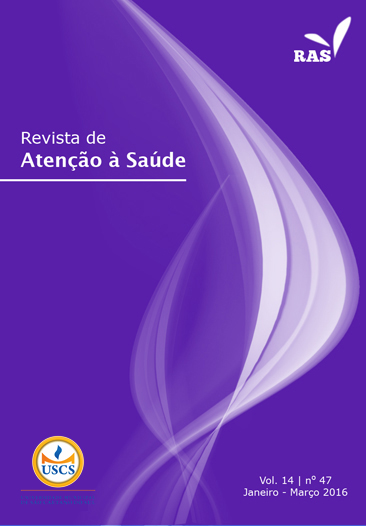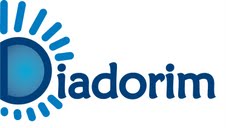The effects of concurrent use of caffeine and creatine in physical exercises
DOI:
https://doi.org/10.13037/ras.vol14n47.3476Keywords:
Caffeine, Creatine, ExerciseAbstract
Introduction: creatine and caffeine are among the most widely used substances as ergogenic resources bythose looking to increase muscle mass, reduce body fat, and improve athletic performance. However, littleis known about the possible synergistic effects of concomitant use of these substances. Objective: to searchfor evidence in the scientific literature about the possible effects of administration of these substances insubjects undergoing physical exercise. Method: a search in LILACS, SciELO, and PubMed databases,using the terms “creatine”, “caffeine”, “resistance exercise”, and “dietary supplementation”. Results: elevenarticles were selected for analysis of the results, as they fulfilled the inclusion criteria. Of these, only fivedealt with exclusive use of creatine associated with caffeine, and the remaining with other substancesmarketed as dietary supplements. The few studies on the concomitant use of creatine with caffeine differgreatly in the testing and supplementation protocols applied, making it difficult to conclude if the use ofsuch substances can actually be beneficial to consumers. Conclusion: the results of three articles evidencedan annulment effect of caffeine on the ergogenic effects of creatine, and the others presented conflictingevidence on the variables analyzed.Downloads
References
1. Alves C, Lima RVB. Dietary supplement use by adolescents. Jornal de Pediatria. 2009;85(4):287-94.
2. Goston JL, Correia MITD. Suplementos nutricionais: histórico, classificação, legislação e uso em ambiente esportivo. Nutrição em Pauta. 2009;98:1-7.
3. Hallak A, Fabrini S, Peluzio MCG. Avaliação do consumo de suplementos nutricionais em academias da zona sul de Belo Horizonte, MG, Brasil. Revista Brasileira de Nutrição Esportiva. 2007;1(2):55-60.
4. Linhares TC, Lima RM. Prevalência do uso de suplementos alimentares por praticantes de musculação nas academias de Campos dos Goytacazes/RJ, Brasil. Vértices. 2006;8(1):101-22.
5. Pereira RF, Lajolo FM, Hirschbruch MD. Consumo de suplementos por alunos de academias de ginástica em São Paulo. Revista de Nutrição. 2003;16(3):265-72.
6. Thein LA, Thein JM, Landry GL. Ergogenic aids. Physical Therapy. 1995;75(5):426-39.
7. Cook CJ, Crewther BT, Kilduff LP, Drawer S, Caviglio CM. Skill execution and sleep deprivation: effects of acute caffeine or creatine supplementation – a randomized placebo-controlled trial. J Int Soc Sports Nutr. 2011;8(2):1-8.
8. McDowall JA. Supplement use by young athletes. Journal of Sports Science & Medicine. 2007;6(3):337-42.
9. Tarnopolsky MA. Caffeine and creatine use in sport. Annals of Nutrition and Metabolism. 2010;57(2):1-8.
10. American College of Sports and Medicine. Caffeine and exercise performance. Indianapolis, IN. [acesso em 06 jun.2015]. Disponível em: http://www.acsm.org/docs/current-comments/caffeineandexercise.pdf
11. World Anti-doping Agency. The world anti-doping code: the 2014 prohibited list – International standard. [acesso em 23 mar. 2014]. Disponível em: http://www.wada-ama.org
12. Altimari LR, Cyrino ES, Zucas SM, Burini RC. Efeitos ergogênicos da cafeína sobre o desempenho físico. Rev. paul. Educ. Fís. 2000;14(2):141-58.
13. Altimari LR, Cyrilo ES, Zucas SM, Burini RC. Cafeína e performance em exercícios anaeróbios. Brazilian Journal of Pharmaceutical Sciences. 2006;42(1):186-90.
14. Braga LC, Alves MP. A cafeína como recurso ergogênico nos exercícios de endurance. Rev. Bras. Ciên. e Mov. 2000;8(3):33-7.
15. Guerra RO, Bernardo GC, Gutiérrez CV. Cafeína e esporte. Revista Brasileira de Medicina do Esporte. 2000;6(2):60-2.
16. Skinner TL, Jenkins DG, Leveritta MD, McGorma A, Bolam KA, Coombesa JS, et al. Factors influencing serum caffeine concentrations following caffeine ingestion. Journal of Science and Medicine in Sport. 2013;17(5):516-20.
17. Costill DL, Dalsky GP, Fink WJ. Effects of caffeine ingestion on metabolism and exercise performance. Medicine and science in sports. 1977;10(3):155-8.
18. Ivy JL, Costill DL, Fink WJ, Lower RW. Influence of caffeine and carbohydrate feedings on endurance performance. Medicine and Science in Sports. 1978;11(1):6-11.
19. Essig D, Costill DL, Van Handel PJ. Effects of caffeine ingestion on utilization of muscle glycogen and lipid during leg ergometer cycling. International Journal of Sports Medicine. 1980;1(2):86-90.
20. Brunetto D, Ribeiro JL, Fayh APT. Efeitos do consumo agudo de cafeína sobre parâmetros metabólicos e de desempenho em indivíduos do sexo masculino. Rev. bras. med. Esporte. 2010;16(3):171-5.
21. Del Coso J, Portillo J, Muñoz G, Abián-Vicén J, GonzalezMillán C, Muñoz-Guerra J. Caffeine-containing energy drink improves sprint performance during an international rugby sevens competition. Amino acids. 2013;44(6):1511-9.
22. Santos VGF, Bertuzzi R, Kiss MAPD, Lima-Silva AE. Efeito da suplementação de cafeína sobre o desempenho de exercícios intermitentes de alta intensidade. Acta brasileira do movimento humano – Revista de Educação Física. 2013;3(2):75-89.
23. Maughan R, Gleeson M, Greenhaff PL. Bioquímica do exercício e do treinamento. Barueri: Manole; 2000.
24. Peralta J, Amancio OMS. A creatina como suplemento ergogênico para atletas. Revista de Nutrição. 2002;15(1):83-93.
25. Persky AM, Brazeau GA. Clinical pharmacology of the dietary supplement creatine monohydrate. Pharmacological Reviews. 2001;53(2):161-176.
26. Koolman J, Röhm KH. Bioquímica: texto e atlas. Porto Alegre: Artmed; 2005.
27. Riegel ER. Bioquímica nutricional do exercício físico. São Leopoldo: Unisinos; 2005.
28. Nissen SL, Sharp RL. Effect of dietary supplements on lean mass and strength gains with resistance exercise: a meta-analysis. Journal of Applied Physiology. 2003;94(2):651-9.
29. Comitê Olímpico Internacional. Nutrition for Athletes. 2012. [acesso em 12 abril 2014]. Disponível em: http://www.olympic.org/documents/reports/en/en_report_833.pdf
30. Prestes J, Foschini D, Marchetti P, Charro M. Prescrição e periodização do treinamento de força em academias. São Paulo: Manole; 2010.
31. Vandenberghe K, Goris M, Van Hecke P, Van Leemputte M, Vangerven L, Hespel P. Long-term creatine intake is beneficial to muscle performance during resistance training. Journal of Applied Physiology. 1997;83(6):2055-63.
32. Franco FSC, Natali AJ, Costa NMB, Lunz W, Gomes GJ, Carneiro Junior MA, et al. Efeitos da suplementação de creatina e do treinamento de potência sobre a performance e a massa corporal magra de ratos. Rev Bras Med Esporte. 2007;13(5):297-302.
33. Olsen S, Aagaard P, Kadi F, Tufekovic G, Verney J, Olesen J, et al. Creatine supplementation augments the increase in satellite cell and myonuclei number in human skeletal muscle induced by strength training. The Journal of physiology. 2006;573(2):525-34.
34. Doherty M, Smith PM, Davison R, Hughes MG. Caffeine is ergogenic after supplementation of oral creatine monohydrate. Medicine and science in sports and exercise. 2002;34(11):1785-92.
35. Gonzalez AM, Walsh AL, Ratamess NA, Kang J, Hoffman JR. Effect of a pre-workout energy supplement on acute multi-joint resistance exercise. Journal of sports science & medicine. 2011;10(2):261-6.
36. Kedia AW, Hofheins JE, Habowski SM, Ferrando AA, Gothard DM, Lopez HL. Effects of a pre-workout supplement on lean mass, muscular performance, subjective workout experience and biomarkers of safety. International journal of medical sciences. 2014;11(2):116-26.
37. Lima FA, Sant’ana AEG, Ataíde TR, Omena CMB, Menezes MES, Vasconcelos SML. Café e saúde humana: um enfoque nas substâncias presentes na bebida relacionadas às doenças cardiovasculares. Revista de Nutrição. 2010;23(6):1063-73.
38. Ormsbee MJ, Mandler WK, Thomas WEG, Kimsey AW, Simonavice E, Panton LB, et al. The effects of six weeks of supplementation with multi-ingredient performance supplements and resistance training on anabolic hormones, body composition, strength, and power in resistance-trained men. J Int Soc Sports Nutr. 2012;9(1):49.
39. Smith AE, Fukuda DH, Kendall KL, Stout JR. The effects of a pre-workout supplement containing caffeine, creatine, and amino acids during three weeks of high-intensity exercise on aerobic and anaerobic performance. J Int Soc Sports Nutr. 2010;7(10):1-11.
40. Spradley BD, Crowley KR, Tai CY; Kendall KL, Fukuda DH, Esposito EN, et al. Ingesting a pre-workout supplement containing caffeine, B-vitamins, amino acids, creatine, and beta-alanine before exercise delays fatigue while improving reaction time and muscular endurance. Nutr Metab (Lond). 2012;9:28-36.
41. Franco FSC, Costa Neusa MB, Oliveira TT, Gomes GJ, Silva KA, Natali AJ. Efeitos da suplementação com creatina e cafeína sobre a força de fratura óssea em ratos submetidos a exercício de saltos verticais. Revista da Educação Física/UEM. 2012;23(1):105-14.
42. Hespel P, Op‘T Eijnde B, Van Leemputte M. Opposite actions of caffeine and creatine on muscle relaxation time in humans. Journal of Applied Physiology. 2002;92(2):513-8.
43. Vandenberghe K, Gillis N, Van Leempute P, Van Hecke F, Vanstapel F, Hespel P. Caffeine counteracts the ergogenic action of muscle creatine loading. Journal of Applied Physiology. 1996;80(2):452-7.
44. Hespel P, Eijnde BO, Van Leempute M, Urso B, Greenhaff PL, Labarque V, et al. Oral creatine supplementation facilitates the rehabilitation of disuse atrophy and alters the expression of muscle myogenic factors in humans. The Journal of physiology. 2001;536(2):625-33.
45. Chilibeck PD, Chrusch MJ, Chad KE, Davison KS, Burke DG. Creatine monohydrate and resistance training increase bone mineral content and density in older men. The Journal of Nutrition, Health & Aging. 2005;9(5):352-3.
46. Franco FSC, Costa NMB, Ferreira SA, Carneiro-Junior MA, Natali AJ. The effects of a high dosage of creatine and caffeine supplementation on the lean body mass composition of rats submitted to vertical jumping training. J Int Soc Sports Nutr. 2011;8(3):1-8.
47. Fukuda DH, Smith AE, Kendall KL, Stout JR. The possible combinatory effects of acute consumption of caffeine, creatine,
and amino acids on the improvement of anaerobic running performance in humans. Nutrition research. 2010;30(9):607-14.
48. Antonio J, Ciccone V. The effects of pre versus post workout supplementation of creatine monohydrate on body composition and strength. Journal of the International Society of Sports Nutrition. 2013;10(1):36-43. 49. Hultman E, Söderlund K, Timmons JA, Cederblad G, Greenhaff PL. Muscle creatine loading in men. Journal of Applied Physiology. 1996;81(1):232-7.
Downloads
Published
Issue
Section
License
Copyright (c) 2016 Raphael Silveira Nunes da Silva, Adriana Marques Toigo

This work is licensed under a Creative Commons Attribution-NonCommercial-NoDerivatives 4.0 International License.
Policy Proposal for Journals offering Free Delayed Access
Authors who publish in this magazine agree to the following terms:
- Authors maintain the copyright and grant the journal the right to the first publication, with the work simultaneously licensed under a Creative Commons Attribution License after publication, allowing the sharing of the work with recognition of the authorship of the work and initial publication in this journal.
- Authors are authorized to assume additional contracts separately, for non-exclusive distribution of the version of the work published in this magazine (eg, publishing in institutional repository or as a book chapter), with the acknowledgment of the authorship and initial publication in this journal.
- Authors are allowed and encouraged to publish and distribute their work online (eg in institutional repositories or on their personal page) at any point before or during the editorial process, as this can generate productive changes, as well as increase impact and citation of the published work (See The Effect of Open Access).









